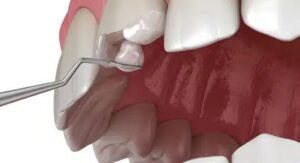Few things are as universally unpleasant as a nagging toothache. Whether it starts as a dull throb or a sudden, sharp pain, toothache can throw off your entire day. It affects how you eat, speak, and even concentrate. Often, these discomforts are signs of underlying issues that, if caught early, can be easily addressed.
While painkillers may provide temporary relief, long-term comfort relies on prevention and professional attention. In serious cases, an emergency dentist in Wimbledon may be necessary to stop the pain and begin treatment.
Fortunately, there are simple but effective habits that can help you avoid the discomfort of toothache altogether. From mindful hygiene to stress management, the following tips will equip you with everything needed to keep your teeth healthy and pain-free.
1. Practise Consistent Oral Hygiene
Daily oral care is your first and strongest line of defence against toothache. Poor hygiene habits allow plaque—a sticky film of bacteria—to build up, leading to decay, gum disease, and eventually pain.
Make it a non-negotiable part of your routine to brush twice a day with a fluoride toothpaste. Fluoride helps to strengthen tooth enamel and reverse early signs of decay. Spend at least two minutes brushing each time, reaching all surfaces—especially the back molars, which often get neglected.
Flossing is equally important. It clears food particles and plaque from between the teeth where your brush can’t reach. Consider incorporating a mouthwash with antiseptic properties into your regimen for added protection.
Simple? Yes. But effective. A clean mouth is far less likely to be a painful one.
2. Stay Hydrated and Mind Your Diet
Your diet plays a bigger role in oral health than you might think. Sugar feeds the bacteria in your mouth, which then release acids that erode enamel. Acids from citrus fruits, fizzy drinks, and vinegar-based snacks can do similar damage.
Water, on the other hand, is your friend. Not only does it wash away leftover food particles and bacteria, but it also helps maintain saliva flow. Saliva is crucial for neutralising acid and repairing early enamel damage.
Chewing sugar-free gum is another handy way to stimulate saliva production—ideal after meals when brushing isn’t an option.
Avoid excessive:
- Sweets and sugary drinks
- Acidic foods (citrus, vinegar-based snacks)
- Sticky snacks (toffee, gummy sweets)
Choose instead:
- Dairy (cheese, yoghurt)
- Crunchy fruits and veg (apples, carrots)
- Whole grains and lean proteins
A tooth-friendly diet is not only good for your body—it’s also a great way to keep discomfort at bay.
3. Avoid Using Teeth as Tools
We’ve all done it—ripping open a packet with our teeth or loosening a bottle cap in a moment of impatience. But teeth aren’t designed for these tasks. Using them as tools can lead to chipping, cracking, or loosening a filling.
This mechanical stress weakens the enamel, often leading to sudden sensitivity or pain when exposed to hot or cold items.
Make a conscious effort to stop this habit. Keep scissors and bottle openers within easy reach. If you’re prone to such shortcuts, a little pre-planning can save you a trip to an emergency dentist Wimbledon.

4. Wear a Mouthguard During Physical Activities
Accidental trauma during sports is a common cause of dental emergencies. Whether it’s a fall on the court or an unexpected elbow in a football match, your teeth are vulnerable.
A custom-fitted mouthguard acts as a shock absorber. It reduces the impact that could otherwise chip or even knock out a tooth.
Mouthguards aren’t just for athletes. If you grind your teeth at night—a condition called bruxism—a nightguard prescribed by your dentist can protect your enamel and reduce morning jaw pain.
Investing in this small piece of equipment could mean avoiding a major dental procedure down the line.
5. Don’t Ignore Mild Tooth Sensitivity
Tooth sensitivity might seem like a minor nuisance, but it’s often the early warning system of bigger issues.
Sensitivity to hot or cold could signal:
- Enamel erosion
- Gum recession
- A forming cavity
- Exposed tooth roots
Instead of brushing it off, take it as a sign to act. Switching to a toothpaste for sensitive teeth might help temporarily, but persistent symptoms should be checked by a professional.
Left untreated, that mild twinge could evolve into severe pain, necessitating urgent care from an emergency dentist in Wimbledon.
6. Regular Dental Check-Ups
It’s tempting to skip dental appointments when everything feels fine. But regular check-ups are not just about getting your teeth cleaned—they’re about prevention.
Dentists can detect early signs of decay, infection, or gum disease well before they become painful. They also perform scaling, a procedure that removes plaque and tartar build-up beyond the reach of regular brushing.
Most experts recommend a check-up every six months. However, if you have existing dental issues or a history of cavities, your dentist may suggest more frequent visits.
A timely appointment can mean the difference between a minor filling and a major extraction.
7. Understand the Role of Dental Implants in Preventive Care
Missing teeth can lead to shifting of nearby teeth, bone loss, and bite misalignment—all of which can cause discomfort or further dental issues.
This is wheredental implants Wimbledonoffer a long-term solution. These implants act like natural teeth, preserving jaw structure and preventing neighbouring teeth from moving.
They are not only cosmetic; dental implants play a preventive role too. By restoring full function, they allow for proper chewing, speaking, and maintaining oral balance.
If you’ve lost a tooth or are planning an extraction, speak with your dentist about implant options. It’s a proactive step that protects against future pain.

8. Manage Stress to Avoid Grinding
Stress doesn’t just affect your mind—it takes a toll on your teeth too. Many people clench or grind their teeth unconsciously, especially during sleep. This can wear down enamel, crack fillings, and lead to jaw pain or headaches.
Common signs of bruxism include:
- Flattened or chipped teeth
- Waking up with jaw pain
- Tension headaches
- Tooth sensitivity without cavities
Try reducing stress through activities like meditation, breathing exercises, or gentle yoga. In severe cases, your dentist may recommend a custom nightguard.
Recognising and addressing stress-related habits early can prevent the cascade of pain they often trigger.
Table: Preventive Measures at a Glance
| Tip | Action Taken | Benefit Achieved |
| Brushing and Flossing | Use fluoride, brush twice daily | Removes plaque, prevents decay |
| Healthy Diet and Hydration | Drink water, limit sugar | Supports enamel and reduces bacteria |
| Avoiding Teeth as Tools | Use scissors, bottle openers | Prevents physical damage |
| Wearing Mouthguards | During sports or at night | Prevents trauma and grinding |
| Responding to Sensitivity Early | Seek dental advice promptly | Avoids worsening dental issues |
| Routine Dental Check-Ups | Every 6 months | Enables early detection |
| Considering Dental Implants | Replace missing teeth | Prevents jaw and bite issues |
| Managing Stress | Relaxation techniques, guard | Reduces enamel wear |
Conclusion
Toothache is more than an inconvenience—it’s often a red flag. The good news is that most of the discomfort people experience is preventable with the right habits and a bit of awareness.
By brushing regularly, staying hydrated, using protective gear, and attending routine check-ups, one can drastically reduce the risk of oral pain. Taking proactive steps today spares the trouble of emergency dental visits tomorrow.
For those seeking trusted, professional care tailored to their needs, The Dental Lounges – Wimbledon stands as a dependable partner in long-term oral wellness.



